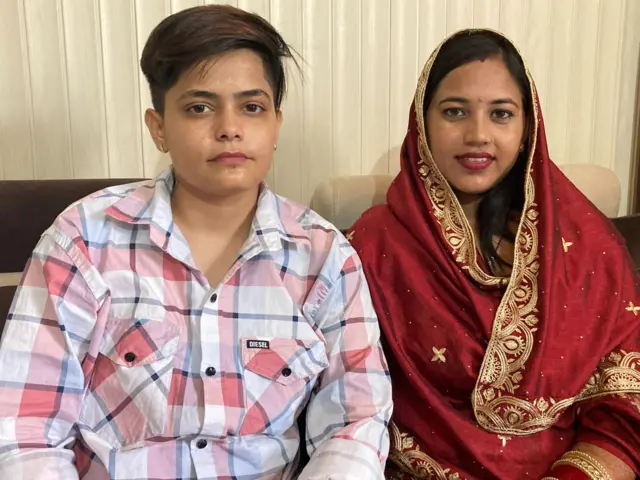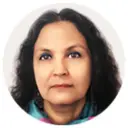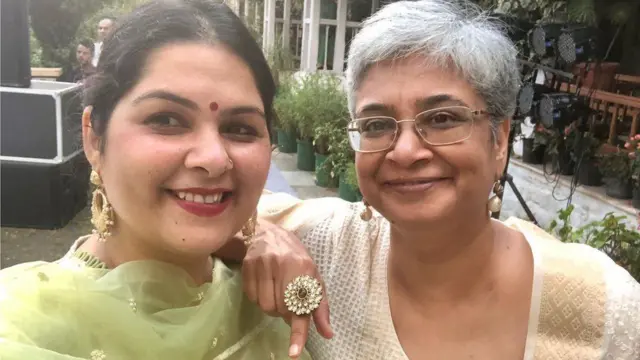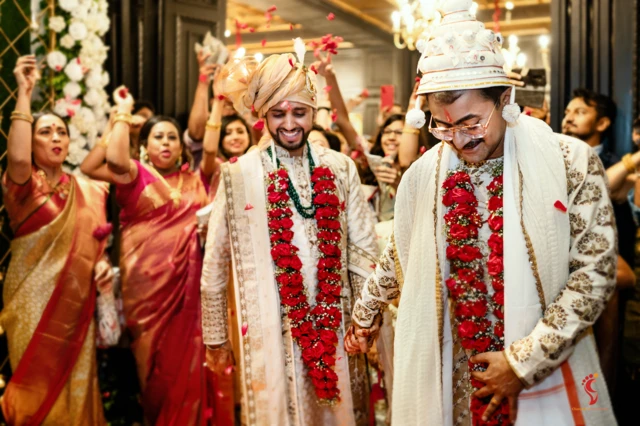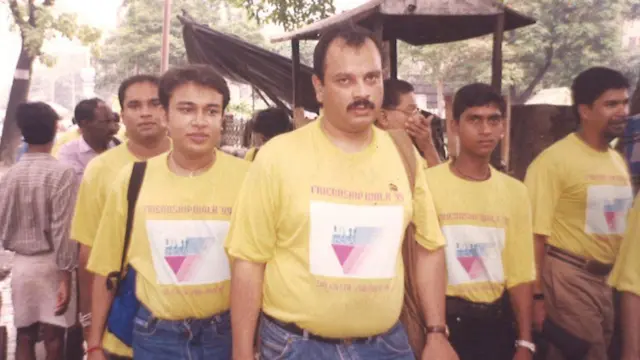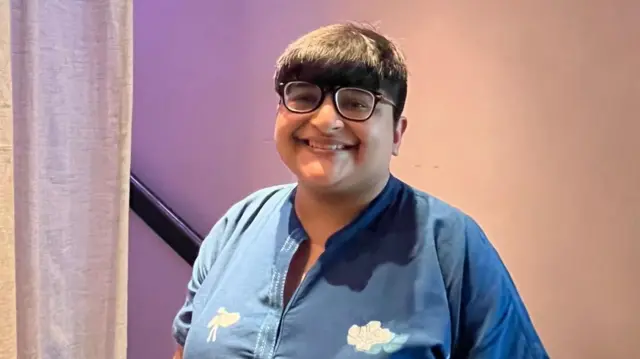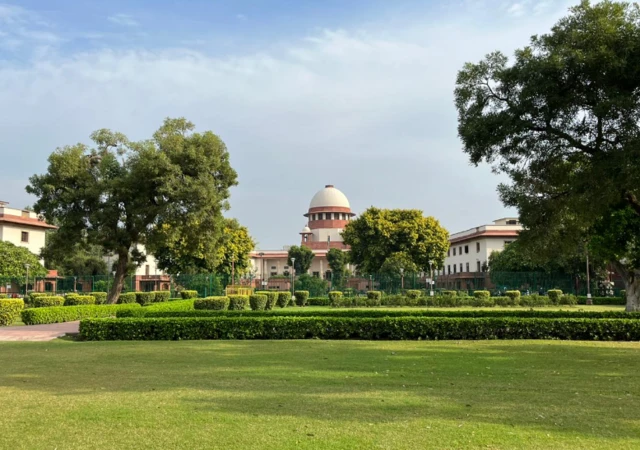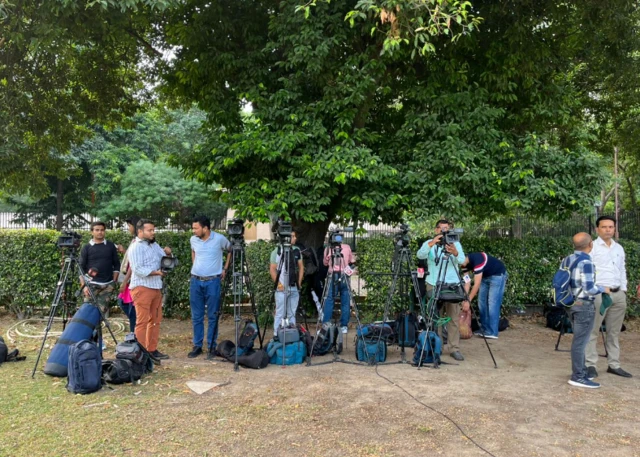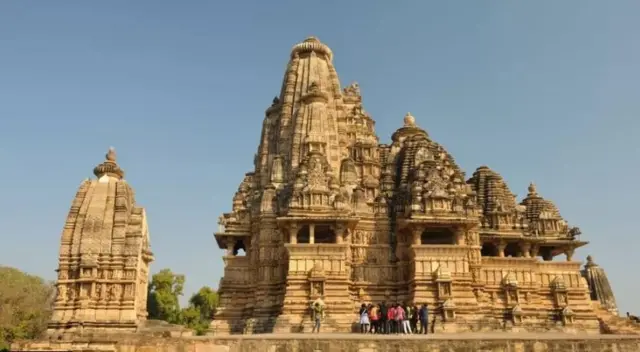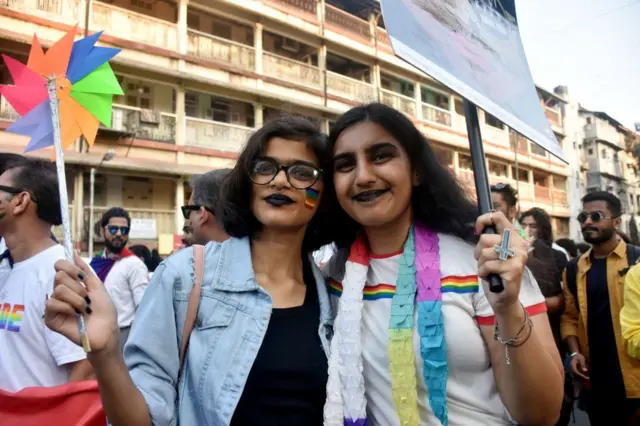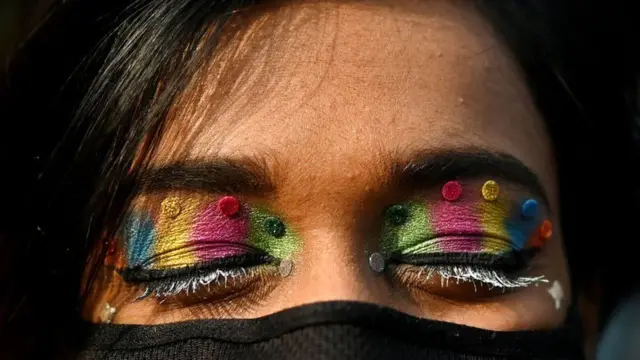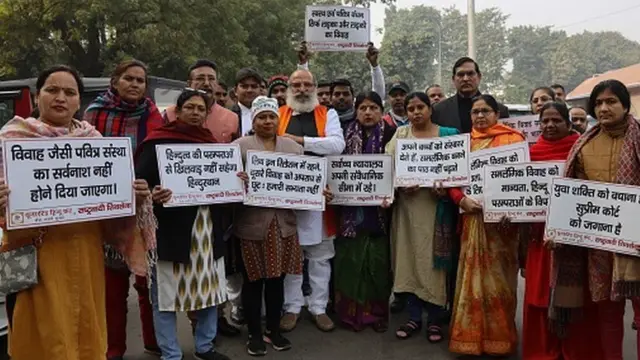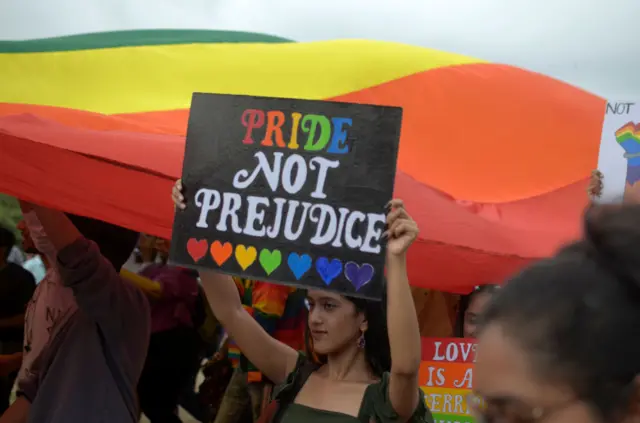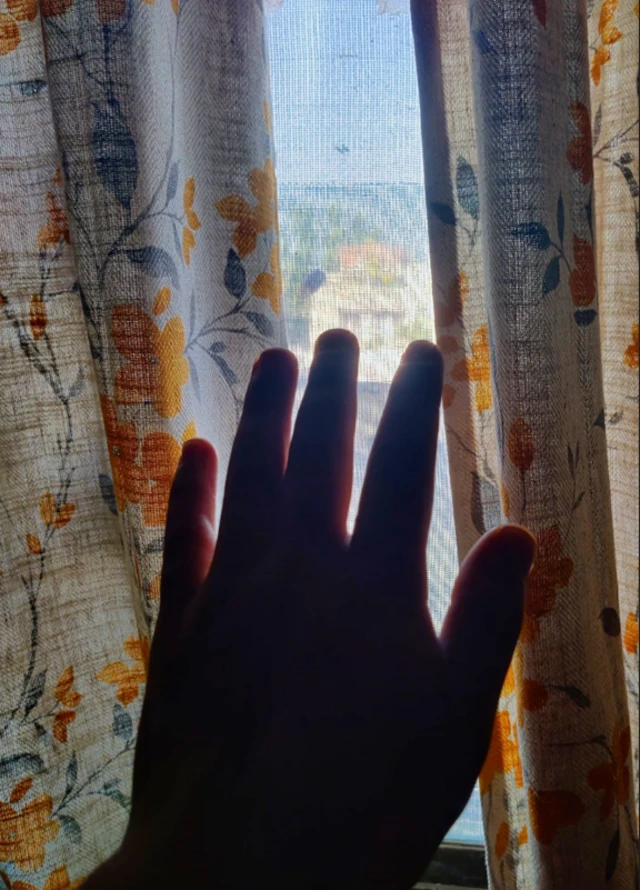'Why do we have to hide our love?'published at 05:52 BST 17 October 2023
Zoya Mateen
Reporting from Delhi
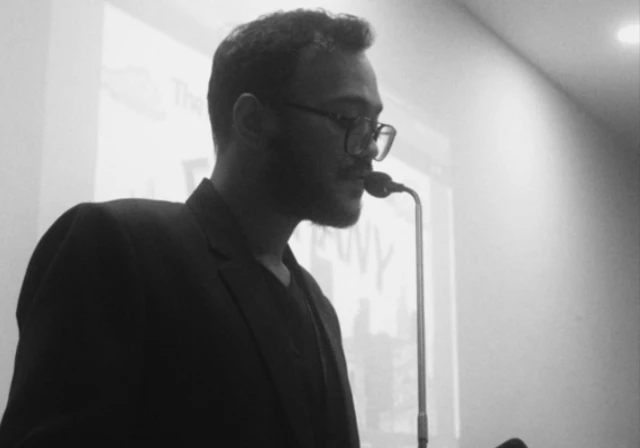
Archit Dutt was 14 when he first tried coming out to his family as gay. But they immediately rejected him and, afraid of being abandoned, he pretended to be heterosexual.
He took refuge in films, mostly foreign productions on LGBTQ+ lives. “But I always wondered why there wasn't enough mainstream representation for people like us in India.”
Now a 20-year-old student of English literature - and an aspiring make-up artist - he lives in Delhi, away from his family who still don’t know he’s gay.
But he hopes that the Supreme Court’s order might help change that.
“On the upside, it will finally shatter the moulds we are constantly forced into.” If it’s unfavourable, then “our lives would be pushed back by a century”, he adds.
“Either way, I will always love my parents, even though I don’t know if they’ll ever accept me for who I am.”
